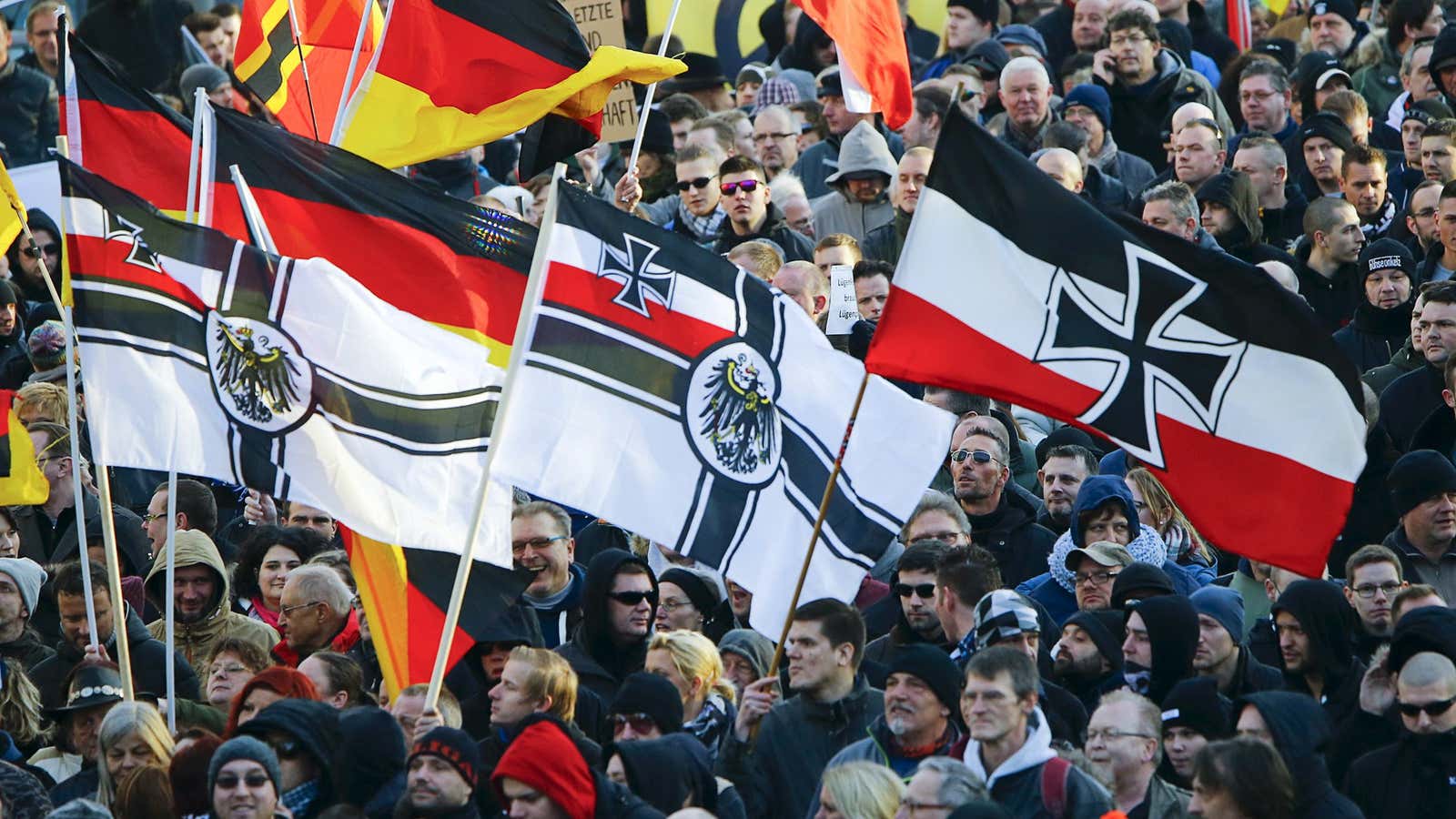After propelling Donald Trump into the White House, Breitbart News is turning its focus to Europe.
The website was thrust into the spotlight in the run-up to the election when the former executive chairman Stephen Bannon, the leading voice of the alt-right, was named as Trump’s top campaign operative. Under Bannon’s reign, Breitbart News has become known for its incendiary articles such as “Does feminism make women ugly?” and having a section called “Black Crime.” Bannon was recently named the new White House chief strategist.
Now, after launching in the UK and expanding its operations in the US, Breitbart will take its winning formula to Germany and France, according to Reuters. With elections planned in both countries next year, the alt-right website hopes to capitalize on the anti-immigrant sentiment sweeping Europe to formulate further Trump-style upsets.
“We think that France is the place to be,” Bannon said in the summer (link in French) before he joined Trump’s campaign; Breitbart plans to open a Paris bureau before the presidential election in May.
The moves come after the nationalism-fueled wins for Brexit—the UK’s decision to leave the European Union—and Trump, both of which set record traffic for Breitbart. France could be the site of the next shock upset.
Marine Le Pen, the leader of France’s far-right party Front National, is gearing up for the French presidential election next year. President François Hollande is the most unpopular leader in French history, and the mainstream right is also polling well—they are holding their primary today. One candidate, former president Niçolas Sarkozy, has aped Le Pen’s anti-immigrant rhetoric to become one of the leading contenders.
France has struggled with integrating its large Muslim population and a string of horrific terror attacks last year have exacerbated fears and tension. There is already a strong far-right online press in France. The founder of one such site Égalité et Réconciliation, Alain Soral, told The Verge of Breitbart that he wasn’t worried about fighting for readers. “I think they’re placing themselves more in direct competition with mainstream media. Whereas we remain with the people who no longer want to believe the media, and who no longer want to hear it.” (Soral was fined for espousing anti-Semitic views on Facebook.)
As for Le Pen, was one of the first European politicians to congratulate Trump on his victory (and among many of Europe’s far-right to welcome the result). The odds suggest Le Pen will falter in the second round of the country’s two-stage runoff vote, but after Brexit and Trump, many have, unsurprisingly, lost confidence with pollsters.
If you Google “front national polls,” the second story is from Breitbart titled “Marine Le Pen surges in French polls.”
The same populism could also shake up the status quo in Germany. Chancellor Angela Merkel—who has being described as the liberalism’s last defender (paywall) in the West—will likely stand for a fourth term. But she is facing renewed pressure after Germany let in 1 million migrants last year. After several high-profile incidents of local communities opposing the migrants, a mass sexual assault in Cologne on New Year’s Eve, and a string of terror attacks from refugees, Merkel expressed a rare show of regret on how she executed the policy.
Her biggest threat would be others from the right of the German political spectrum, but Breitbart would likely fly the flag for Frauke Petry, the leader of Alternative für Deutschland, who has been nicknamed “Adolfina” by her detractors (paywall).
